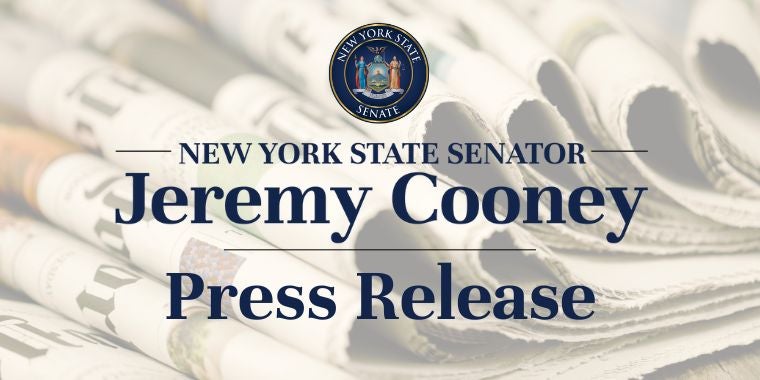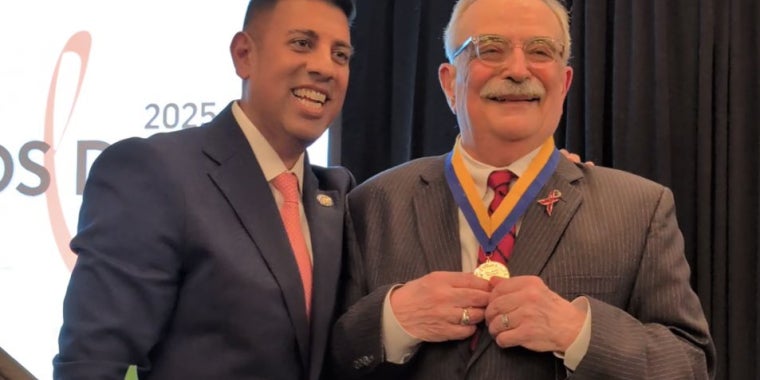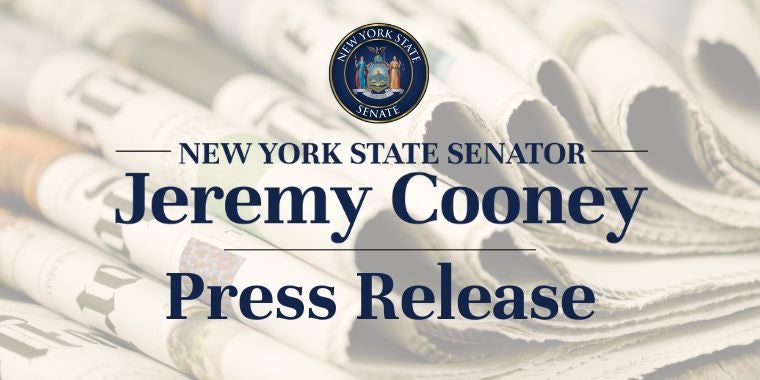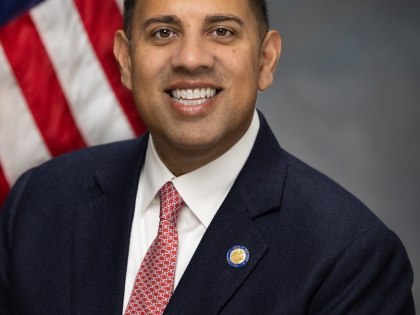
Sen Cooney, AM Bronson, AFL, 1199, UAW, CWA Rally in Rochester for a $21.25 Minimum Wage
April 12, 2023
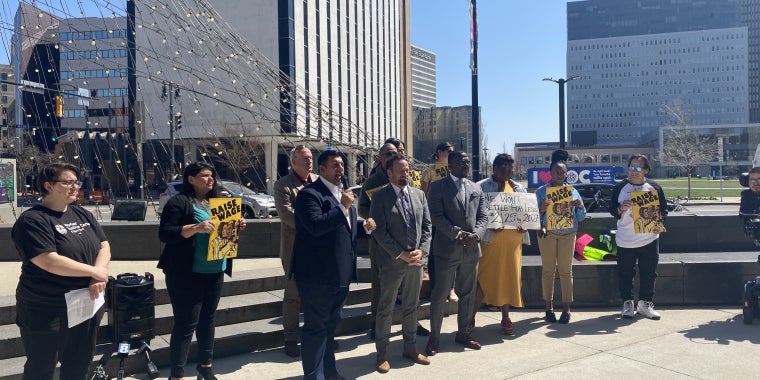
Rochester, NY – On Wednesday, State Senator Jeremy Cooney, Assemblymember Harry Bronson, impacted workers, Rochester Area Labor Federation, UAW, Federation of Social Workers IUE-CWA, 1199, Fair Pay for Home Care joined forces in Rochester at a press conference urging Governor Kathy Hochul and the Legislature to include a $21.25 minimum wage in the final state budget before indexing it to future rising costs. Over 30 labor unions across New York have joined the Raise Up NY coalition, fighting for the Raise the Wage Act which would benefit 2.9 million New Yorkers with an annual raise of $3,300. In addition to labor support, the Raise the Wage Act has support from 160 organizations, nearly 300 businesses, and over 80 Albany Democratic lawmakers, ranging from progressives to moderates. The legislation is also extremely popular among New Yorkers, with recent polling showing that 80% of New Yorkers – including 65% of Republican voters – support raising the minimum wage to $20+ before indexing it.
Working families across the state are grappling with the gravest cost-of-living crisis in 40 years. With the minimum wage at only $14.20 in upstate New York and frozen at $15 downstate, wages are now worth 15% less than they were in 2019. This means $15 has the purchasing power of just $12.75 today. Governor Kathy Hochul’s budget proposal would only index New York’s minimum wage starting at the current $15, increasing worker pay by only $13/week for only 900,000 workers – a far less effective proposal compared to the Raise the Wage Act. Earlier this week, Attorney General Letitia James joined over ten unions in support of a $21.25 minimum wage. The Attorney General told impacted workers, “this is an inflection point in New York State and all across this nation. It is time we pay you what you deserve. It is time we move the bill, it is time we address the felt needs of New Yorkers and members of unions.”
More than half of the children in the City of Rochester live in poverty. Raising the minimum wage is about dignity, it is about fighting poverty, it is about ensuring that all New Yorkers are paid a living wage—regardless of their job title or industry. In Rochester, and New York, we lead. It is past time we meet the moment, where a $15 hourly wage is inadequate in the face of steadily-rising costs of rent, utilities, groceries, and other necessities, we must continue our fight to permanently index the minimum wage to the rate of inflation,” said Senator Jeremy Cooney.
“Affordability is one of my highest priorities as we negotiate the state of the budget. To make New York State more affordable for our families and other workers, we must first raise the minimum wage to a level that will give workers adequate purchasing power in the current economy. Key to maintaining this purchasing power will be to then index minimum wage to the cost-of-living. This approach of linking wages to the economy, gives both workers and employers a level of certainty, maintains workers’ purchasing power, and will grow our economy.“ said Assemblymember Harry Bronson, Chair of the Assembly Committee on Economic Development.
Raising poverty wages isn't just a matter of economic justice, it's a matter of human dignity. It's time to recognize that every person deserves a living wage, and that a fair and just society cannot be built on the backs of those who struggle to make ends meet,” said Jensen Caraballo, Home Care recipient.
New York State is not alone in grappling with a dire affordability crisis – many states and cities are working to raise their minimum wages by 2027. High cost regions of the country, including Washington, D.C., Denver, San Francisco, and Seattle already have minimum wages in the $17 to $18 range and are projected to reach $20 to $21 by 2027. And high cost states like Massachusetts are proposing to raise their wages to $20 by 2027 in response to the sky-rocketing cost of living.
The Raise the Wage Act would deliver a meaningful raise similar in scale to the $15 minimum wage—which delivered large raises to one in three New Yorkers without causing any job loss. Five independent studies have found that New York’s 2016 legislation, which raised the minimum wage to $15, led to historic reductions in poverty and earnings inequality in New York without hurting job growth. In fact, both upstate and down, jobs in New York grew at least as fast, and in many cases faster, than they did in similar counties in states that didn’t raise the minimum wage during that period. Raising the minimum wage also boosted sales at local businesses across New York and helped businesses keep their employees, saving them recruitment and retention costs.
###
Share this Article or Press Release
Newsroom
Go to Newsroom
